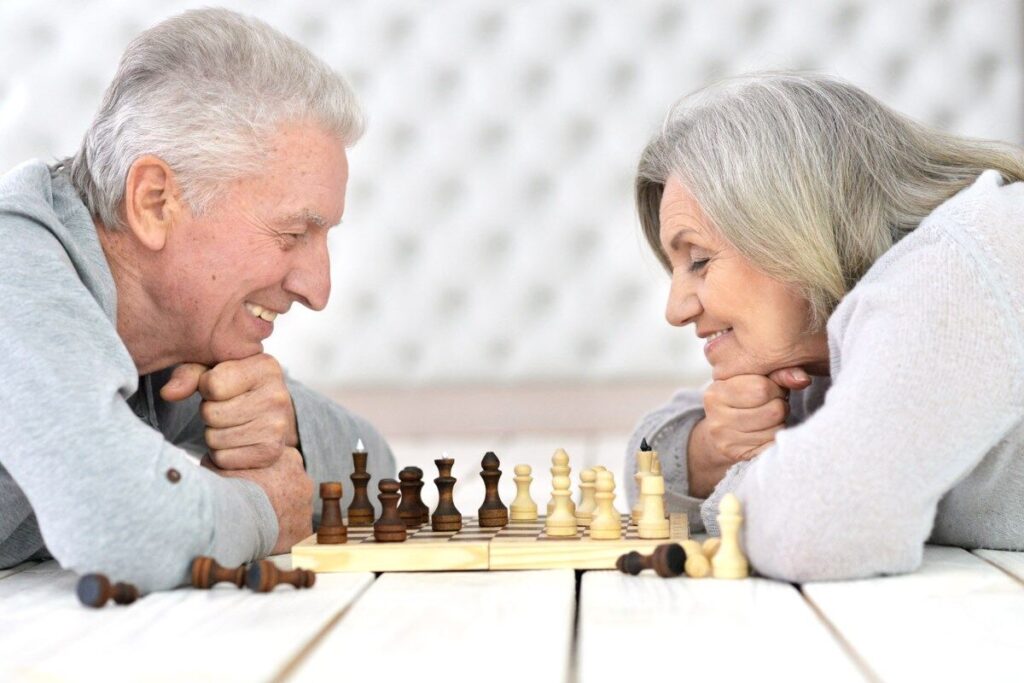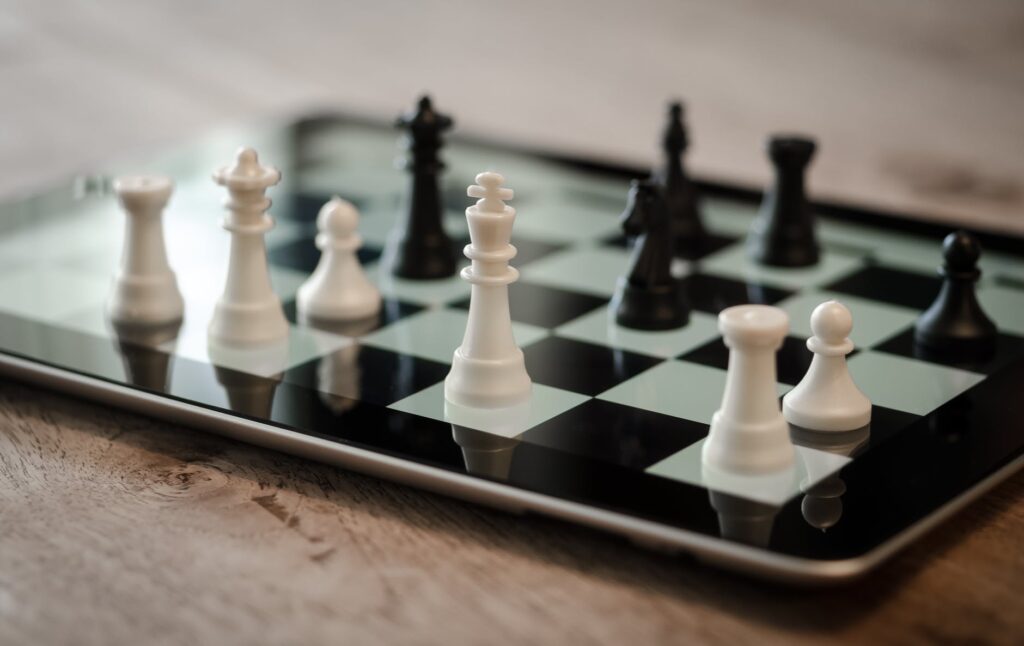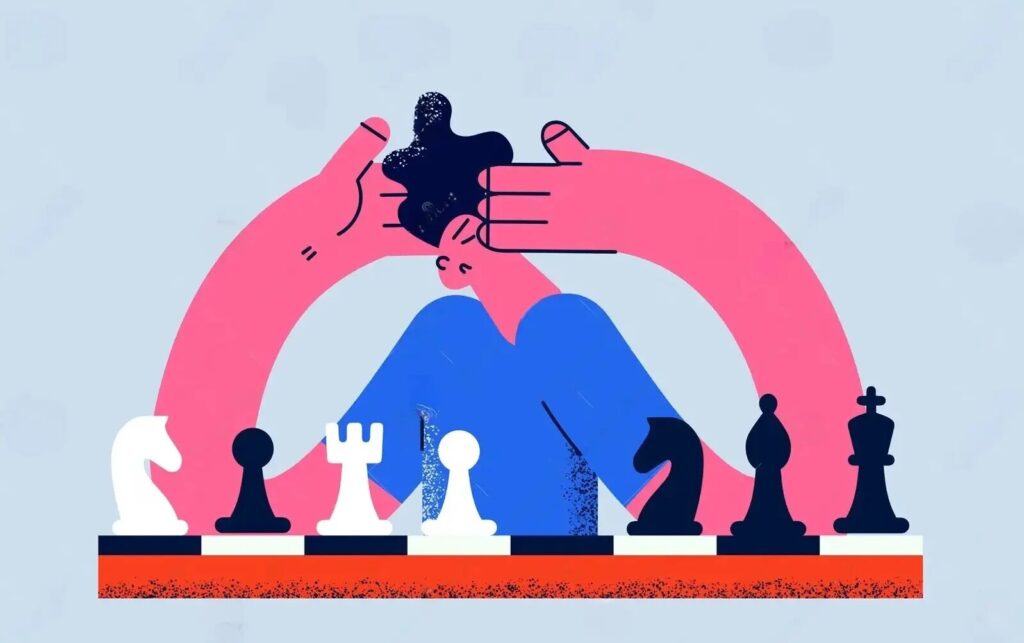When we think about endurance, most of us think about physical stamina—the ability to keep going in a long race or workout. But mental endurance is just as important, if not more so. Mental endurance is the capacity to stay focused, make decisions under pressure, and keep a clear head, even when things get tough. In today’s fast-paced world, where distractions are everywhere, building mental endurance is essential for both children and adults.
What is Mental Endurance?
Mental endurance refers to the ability to sustain focus and mental effort over time. It’s not just about how long you can concentrate, but also about how well you can think critically and make decisions when under pressure or when things aren’t going your way.
Like physical endurance, mental endurance takes practice and training.
In daily life, we encounter many situations that require mental endurance. Whether it’s completing a long project at work, studying for exams, or dealing with personal challenges, staying mentally strong and focused is crucial for success.
Chess helps develop this type of endurance by forcing players to think deeply, remain focused for extended periods, and bounce back from mistakes without giving up.
Staying Focused for Long Periods
Chess is a game that rewards patience and long-term thinking. Unlike many modern activities that offer instant gratification, chess requires sustained focus.
A typical chess game can last anywhere from 30 minutes to several hours, depending on the format. During this time, players need to remain fully engaged, thinking several moves ahead while also responding to their opponent’s moves.
This type of concentration trains the brain to focus for extended periods without getting distracted.
For children, learning to focus for long periods is especially valuable. In a world full of distractions like smartphones and video games, it’s becoming harder for kids to stay focused on one task.
Chess provides a structured way to practice deep concentration, which can improve their ability to focus in school and other areas of life.
Patience and Persistence: Key Elements of Mental Endurance
Chess is a game of patience. Success often doesn’t come immediately, and players must be willing to wait for the right opportunity.
Unlike many other games that reward quick actions or fast reactions, chess encourages slow, deliberate thinking. It’s not about rushing to make a move but about thinking carefully, considering your options, and waiting for the perfect moment to strike.
This teaches players the value of patience, a core aspect of mental endurance.
Learning to Wait for the Right Move
In chess, making hasty moves often leads to mistakes. Players must learn to take their time, evaluate the board, and plan several moves ahead.
This practice builds patience, helping players understand that rushing can lead to errors and missed opportunities. Instead, chess teaches that it’s better to wait for the right moment, even if that means holding back on an attack or sacrificing a piece temporarily to achieve a long-term advantage.
For children, developing patience through chess can have a significant impact on their ability to manage long-term tasks, such as school projects, studying for exams, or working toward personal goals.
Chess shows them that success doesn’t happen overnight—it requires steady effort, thoughtful planning, and the willingness to wait for the right opportunities.
Overcoming Setbacks and Building Resilience
One of the most valuable lessons chess teaches is how to deal with setbacks. No chess game is perfect, and even the best players make mistakes or encounter difficult situations.
But the beauty of chess lies in its ability to teach resilience. Players learn that just because they’ve lost a piece or made a mistake doesn’t mean the game is over. There’s always a way to come back, adjust their strategy, and keep playing.
This resilience is critical for mental endurance. In life, setbacks are inevitable, whether it’s failing a test, facing rejection, or struggling with a challenge at work.
Chess helps players develop the mental strength to keep going, even when things don’t go as planned. The game reinforces the idea that persistence, rather than perfection, is the key to long-term success.
Decision-Making Under Pressure: A Core Skill for Mental Endurance
In chess, decision-making is everything. Every move matters, and each decision can significantly impact the outcome of the game.
However, chess players often have to make these critical decisions under pressure. Whether it’s managing time in a blitz game or responding to an unexpected move from an opponent, chess constantly pushes players to think clearly and make effective choices, even when the clock is ticking or the position looks unfavorable.

Thinking Clearly in Stressful Situations
Chess games, particularly timed formats, require players to manage stress and make decisions quickly. As time runs out, the pressure builds, but players must still evaluate the board, anticipate their opponent’s moves, and make the best choice possible.
This ability to remain calm under pressure directly strengthens mental endurance. Chess teaches players how to handle stress by encouraging them to stay focused and not let the pressure cloud their judgment.
This skill is especially valuable for children, who often face stressful situations like exams, sports competitions, or peer pressure.
Through chess, they learn how to stay composed and make thoughtful decisions, even when they feel overwhelmed. As they become more comfortable handling pressure in a game, they can apply these skills in real-life situations, developing stronger mental resilience.
Managing Time Effectively
Time management is another critical aspect of mental endurance that chess helps develop. In chess, players must balance speed and accuracy, particularly in timed games where the clock is always ticking.
Taking too long to make a move can lead to running out of time, but moving too quickly increases the risk of mistakes. Chess players must learn how to make efficient decisions while also staying mindful of the time remaining.
The ability to manage time effectively is a skill that translates well into daily life. Whether it’s completing assignments, managing work tasks, or balancing multiple responsibilities, being able to make quick yet thoughtful decisions is crucial for success.
Chess gives players practical experience in managing their time and prioritizing tasks, helping them become more effective decision-makers both on and off the board.
Concentration and Focus: The Heart of Mental Endurance

At the core of mental endurance lies the ability to concentrate deeply for extended periods.
Chess is a game that demands undivided attention. To succeed, players must stay completely focused on the board, anticipating their opponent’s moves, analyzing complex positions, and thinking several steps ahead.
This kind of intense focus is not something that comes naturally—it’s a skill that chess players develop over time.
Deep Focus During Long Games
Some chess games can last for hours, especially in longer formats like classical chess. Maintaining concentration for such a long time requires mental stamina. Every move matters, and one moment of lost focus can lead to a costly mistake.
Chess players, therefore, learn to train their minds to stay sharp throughout the game, even as fatigue sets in.
This ability to sustain focus over a long period is a key part of mental endurance. In real life, whether it’s studying for a difficult exam, working on a complex project, or staying productive throughout a busy day, the ability to maintain focus is essential.
Chess helps train the brain to concentrate for extended periods, improving a player’s ability to stay engaged in tasks that require sustained mental effort.
Blocking Out Distractions
In chess, any distraction can break a player’s concentration and lead to a poor move. Whether it’s noise, the movement of people around the room, or simply the tension of a competitive game, players must learn to block out distractions and stay entirely focused on the board.
This skill, honed through chess, can greatly enhance mental endurance in everyday life, where distractions—both external and internal—are constantly vying for our attention.
For children, this skill is incredibly valuable in the classroom.
Whether it’s staying focused during a lesson, completing homework without getting sidetracked, or preparing for exams, the ability to block out distractions and concentrate on the task at hand is crucial for academic success. Chess teaches young players how to channel their attention fully, even in challenging or distracting environments.
Improving Attention Span
One of the most noticeable benefits of chess is its ability to improve a player’s attention span.
In a world where attention spans are shrinking due to the constant bombardment of quick, digital content, chess offers a slower, more deliberate alternative. It forces players to slow down, think carefully, and give full attention to each move.
As children play chess regularly, they begin to develop stronger attention spans. They learn that focus is not just about staying engaged for a few minutes—it’s about maintaining that focus for the entire duration of the game.
Over time, this enhanced ability to focus translates into better performance in school, sports, and other areas of life where long-term attention and concentration are needed.
Building Emotional Resilience: Chess as a Mental Toughness Trainer

Beyond its strategic depth and need for focus, chess also plays a crucial role in building emotional resilience.
Mental endurance isn’t just about how long you can concentrate, but also about how well you can handle setbacks, manage stress, and bounce back after failure. Chess is one of the best ways to develop these emotional skills.
Learning to Accept and Manage Failure
In chess, losing is inevitable. Even the greatest players in the world lose games. Whether you’re a beginner or an experienced player, you will face defeat multiple times in your chess journey.
Chess teaches players that failure is a part of learning and growth. Rather than being discouraged by a loss, chess encourages players to reflect on their mistakes, learn from them, and come back stronger in the next game.
This mindset is essential for developing emotional resilience. In life, failure is unavoidable—whether it’s in school, work, or personal goals. Chess helps children and adults alike learn that setbacks aren’t something to fear. Instead, they are opportunities for growth.
Developing this mindset through chess can help children approach challenges with a sense of optimism and persistence, knowing that even when things go wrong, they can always improve and try again.
Staying Calm Under Pressure
Chess often puts players in high-stress situations, particularly in timed games or critical moments when a wrong move could cost the game. In these moments, staying calm is crucial.
Chess teaches players to manage their emotions and not let frustration or panic cloud their judgment. Remaining calm allows players to think more clearly and make better decisions, even when the pressure is on.
In life, stress is unavoidable, whether it’s from a tight deadline, an important exam, or personal challenges.
Chess prepares players to handle these moments with grace and composure. By learning to keep their emotions in check on the chessboard, players develop the emotional toughness to navigate stressful situations in real life, making them more resilient and able to cope with challenges.
Developing a Growth Mindset
One of the most important psychological benefits of chess is that it encourages a growth mindset—the belief that intelligence and skills can be developed through effort and learning.
Chess players know that improvement comes from practice, reflection, and learning from both victories and defeats. This perspective fosters mental endurance because it reinforces the idea that challenges and setbacks are not the end—they’re just part of the process.
For children, developing a growth mindset is crucial for academic success and personal development. When kids see that they can improve their chess skills through practice, they begin to apply the same mindset to schoolwork and other activities.
They become more motivated to keep trying, even when things get tough, because they understand that with effort, they can improve over time.
Chess as a Lifelong Tool for Mental Endurance

While chess offers significant benefits in the short term—like improving focus, resilience, and decision-making—its impact can extend far beyond the board, shaping a person’s ability to face challenges throughout life.
The mental endurance built through chess doesn’t just help during games; it prepares players for real-life situations where persistence, calm under pressure, and thoughtful decision-making are essential.
Preparing for Academic and Professional Success
The mental endurance developed through chess is particularly useful in academic settings. Students who play chess regularly tend to perform better in school because they’ve trained their minds to stay focused for long periods, handle setbacks, and think strategically.
These same skills carry into professional life as well, where the ability to concentrate, make sound decisions, and stay composed under pressure are highly valued.
Chess players are better prepared to tackle long-term projects, exams, or complex problems at work because they’ve built the mental stamina to stay engaged and think critically, even when challenges arise.
The patience, resilience, and adaptability learned through chess are qualities that employers and educators alike look for in successful individuals.
Chess as a Lifelong Companion
One of the greatest aspects of chess is that it’s a game you can enjoy at any age.
Whether you’re a child just learning the basics or an adult looking for a mental workout, chess offers endless opportunities for growth. It continues to challenge your mind, strengthening mental endurance throughout your life.
For older adults, chess is especially beneficial for keeping the brain sharp and reducing the risk of cognitive decline.
Regular mental exercise, like playing chess, helps maintain focus, memory, and problem-solving skills well into old age. This makes chess not just a tool for building mental endurance in youth but also a companion for sustaining mental fitness throughout life.
Strengthening Mental Endurance in Everyday Life
Ultimately, chess provides a mental training ground that prepares players to face life’s challenges with greater confidence and clarity.
It teaches you how to think strategically, stay focused under pressure, and bounce back from setbacks. These lessons, learned on the chessboard, can be applied to any area of life—from school and work to personal relationships and beyond.

At Global School of Chess, we believe that learning chess is about more than mastering the game—it’s about building skills that will benefit you for a lifetime.
Whether you’re a beginner or an experienced player, our programs are designed to help you strengthen your mental endurance and develop a strategic mindset. Ready to start your chess journey? Visit Global School of Chess and discover how chess can boost your mental strength.
Wrapping it up
Chess is more than just a game—it’s a powerful tool for building mental endurance. By challenging players to think deeply, stay focused, manage stress, and learn from setbacks, chess helps develop the cognitive and emotional resilience needed for success in all areas of life.
Whether you’re looking to improve concentration, handle pressure better, or strengthen your decision-making skills, chess offers lifelong benefits for both children and adults.
At Global School of Chess, we’re committed to helping players of all levels build these critical skills. Ready to start your journey toward stronger mental endurance? Visit Global School of Chess today to learn more.
READ NEXT:

